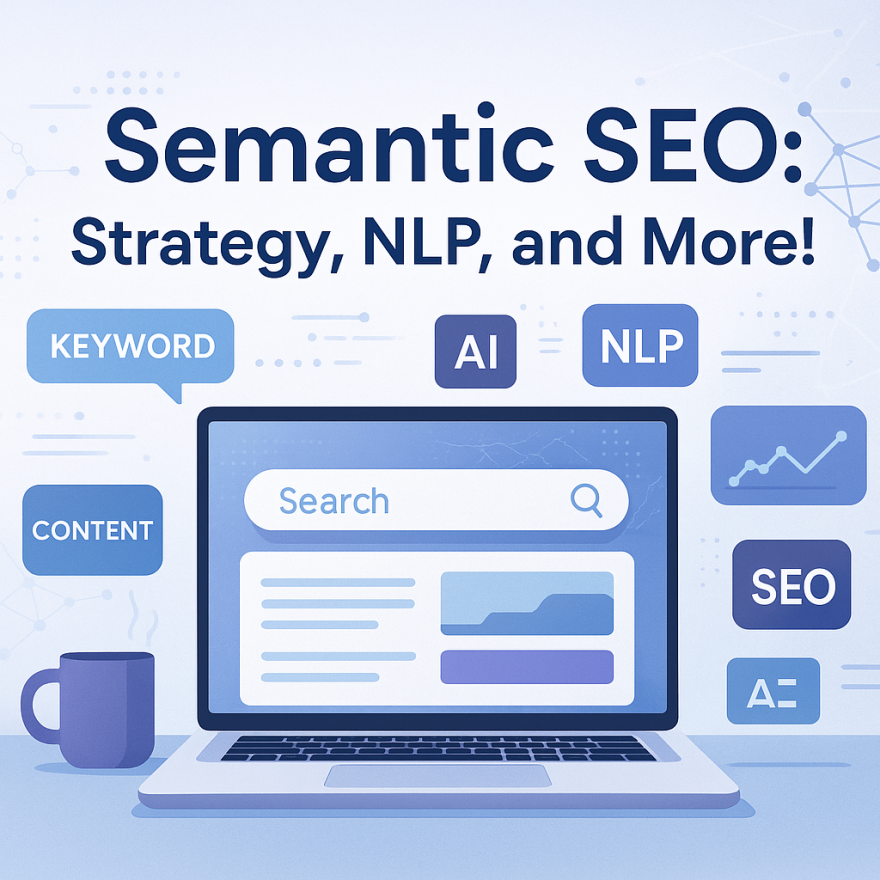

In today’s online world, search engine ranking isn’t about adding keywords to your content. It involves context, applicability, and intent of use. That is why Semantic SEO comes onto the scene.
At Hashtag Orange, great content connects with people and search engines. As AI, voice search, and conversational search grow in popularity, it’s key to understand how search engines interpret information.
This blog covers Semantic SEO, its importance, and how to build a successful strategy. It also explores the role of NLP semantic analysis and other innovative methods.
Semantic SEO is the process of optimizing content around the meaning behind search queries. It is not a simple keyword match, but it aims to meet users’ questions within a wider and more significant context.
Search engines now use Natural Language Processing (NLP). This technology helps them grasp the true meaning of the words users type. This means that Google looks for pages that answer a question thoroughly, even if the exact keyword isn’t used.
The search algorithms have changed a lot, and user behaviour has changed too. The current users do not only want their answers to be exact matches. The benefit of Semantic SEO:
In 2025 Semantic SEO strategy will not be an option anymore; it will help you to stand out in the crowded search results.
Natural Language Processing (NLP) is an AI that allows machines to comprehend human language. Under the domain of SEO, NLP semantic analysis is applied by the search engines to:
For example, If your blog is about “electric cars,” NLP will look for words like battery, charging station, and range anxiety. This is a further insight that helps Google know whether your page actually addresses the content.
At Hashtag Orange, when we audit our content, we do it with NLP-based tools to make sure that they match the search intent. It can enable us to optimize not only on keywords, but also on relevance and depth.
Creating a Semantic SEO strategy goes beyond searching for keywords. In a nutshell, it is as follows:
At Hashtag Orange, we help clients rank for competitive keywords and gain more search terms.
LSI keywords can be naturally integrated in multiple places within your content to help search engines understand the topic better. Here’s where to include them:
| Content Area | Usage Example |
| Headings/Subheadings | Use related queries like “How semantic SEO helps Google understand content” |
| Body Content | Sprinkle terms like “contextual relevance,” “search intent,” “topic modelling” |
| Image Alt Text | Add alt text like “semantic search process illustration” |
| Meta Descriptions | Use LSI keywords to increase click-through rates |
| Internal Links | Link related articles with descriptive anchor text |
The 2025 digital ecosystem will be based on smarter search. Your content is ensured because via LSI keywords in SEO and NLP semantic analysis it is:
Semantic SEO isn’t a trick or shortcut. It’s a smarter way to create content that connects with people and algorithms. You can boost visibility, engagement, and trust with NLP semantic analysis, LSI keywords in SEO, and structured content strategies.
At Hashtag Orange, we blend creativity with search science to help our clients grow. Being a startup or a legacy brand has little to do with standing out by using a strong semantic SEO approach.


